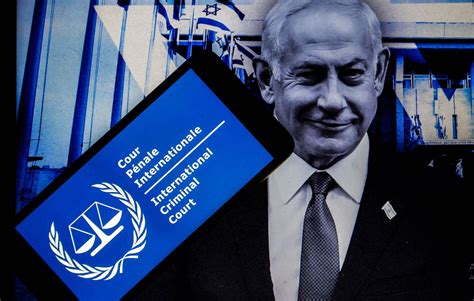—
Hungary’s Bold Move
Hungary has made a significant announcement that it will be withdrawing from the International Criminal Court (ICC). The decision came just hours after Israeli Prime Minister Benjamin Netanyahu, who is facing an ICC arrest warrant, arrived in Hungary for a state visit. This move by Hungary marks a pivotal moment in international relations and legal proceedings.
Background on the ICC
The International Criminal Court is a global judicial institution with the authority to prosecute individuals for genocide, crimes against humanity, and war crimes. With 125 member states, the ICC plays a crucial role in upholding justice on an international scale.
As one of the founding members of the ICC, Hungary’s decision to withdraw holds significant weight. Despite being part of the European Union, Hungary will be the first EU nation to pull out of this influential court.
Orban’s Stance
Prime Minister Viktor Orban wasted no time expressing his support for Netanyahu when the arrest warrant was issued last November. He emphasized that Hungary would not be swayed by external legal pressures and insisted that the ruling against Netanyahu would have no impact within Hungarian borders.
During a joint press conference, Orban criticized the ICC as a “political court,” indicating his administration’s skepticism towards international judicial bodies perceived as overstepping their boundaries.
Netanyahu’s Response
Benjamin Netanyahu hailed Hungary’s decision to withdraw from the ICC as “bold and principled.” He commended Hungary for standing up against what he referred to as a “corrupt organization.” The Israeli leader condemned the arrest warrant issued by the ICC as antisemitic and expressed gratitude for Hungary’s solidarity.
Israel Foreign Minister Gideon Sa’ar also voiced appreciation for Hungary’s unwavering support alongside Israel amidst legal challenges from international institutions like the ICC.
Implications of Withdrawal
While Hungary’s withdrawal may not have immediate consequences on ongoing legal proceedings at the ICC, it sets a precedent for other nations to reconsider their commitments to international justice based on political alliances or disagreements with specific rulings.
Critics argue that such withdrawals could undermine global efforts towards accountability and justice in cases of alleged war crimes and human rights violations. However, supporters view it as a sovereign nation exercising its right to make independent decisions regarding its legal affiliations.
Expert Analysis
Experts believe that Hungary’s exit from the ICC reflects Prime Minister Orban’s broader foreign policy agenda focused on nurturing strong bilateral relations with allies like Israel while challenging multilateral institutions perceived as infringing on national sovereignty.
This move underscores growing tensions between some nations and international bodies like the ICC, highlighting complex geopolitical dynamics that influence decisions related to justice and accountability at a global level.
As countries navigate intricate diplomatic landscapes, decisions like Hungary’s withdrawal raise questions about how political considerations intersect with principles of international law and human rights protection.

